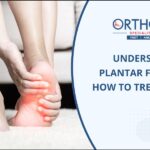While high heels are not the most comfortable shoes to wear, the desire to have the foot look flattering may be ideal in certain situations. The price to pay for this admired look may be the formation of blisters and pain that often form while wearing this type of shoe. An additional downfall of wearing high heels, maybe a stress fracture or a serious ankle injury, and this may also affect the Achilles tendon.
Research has shown that foot pain generally occurs after spending an hour in high heels. This is typically a result of the weight being distributed to the balls of the feet and may often extend to the toes. If high heels are chosen to be worn frequently and for a considerable amount of time, the Achilles tendon may become stiff, and this may result in difficulty with walking. Relief may be found by practicing proper stretching exercises, preferably several times per day.
If you choose to wear high heels, a consultation with a podiatrist or a foot specialist is advised to learn about how to stretch your feet.
Effects of High Heels on the Feet:-
High heels are popular shoes among women because of their many styles and societal appeal. Despite this, high heels can still cause many health problems if worn too frequently.
Which Parts of My Body Will Be Affected by High Heels?
- Ankle Joints
- Achilles Tendon – May shorten and stiffen with prolonged wear
- Balls of the Feet
- Knees – Heels cause the knees to bend constantly, creating stress on them
- Back – Due to altered posture, it may affect the alignment of the spine and cause fatigue in the back muscles leading to frequent back spasms or stiffness
What Kinds of Foot Problems Can Develop from Wearing High Heels?
- Corns
- Calluses
- Hammertoe
- Bunions
- Morton’s Neuroma
- Plantar Fasciitis
- Ingrown toenails
How Can I Still Wear High Heels and Maintain Foot Health?
If you want to wear high-heeled shoes, make sure that you are not wearing them every day, as this will help prevent long-term physical problems. Try wearing thicker heels as opposed to stilettos to distribute weight more evenly across the feet.
Always make sure you are wearing the proper shoes for the right occasion, such as sneakers for exercising. If you walk to work, try carrying your heels with you and changing into them once you arrive at work. Adding inserts to your heels can help cushion your feet and absorb shock. Full foot inserts or metatarsal pads are available.
Dr Chetan Oswal is the United Kingdom trained Foot and Ankle specialist surgeon practising in Pune, India. He has been practising Orthopaedics for the last 12 years and is now working as a dedicated Foot and Ankle Orthopaedic Surgeon. He has been successfully managing patients including elite athletes for practically all problems related to foot and ankle.





